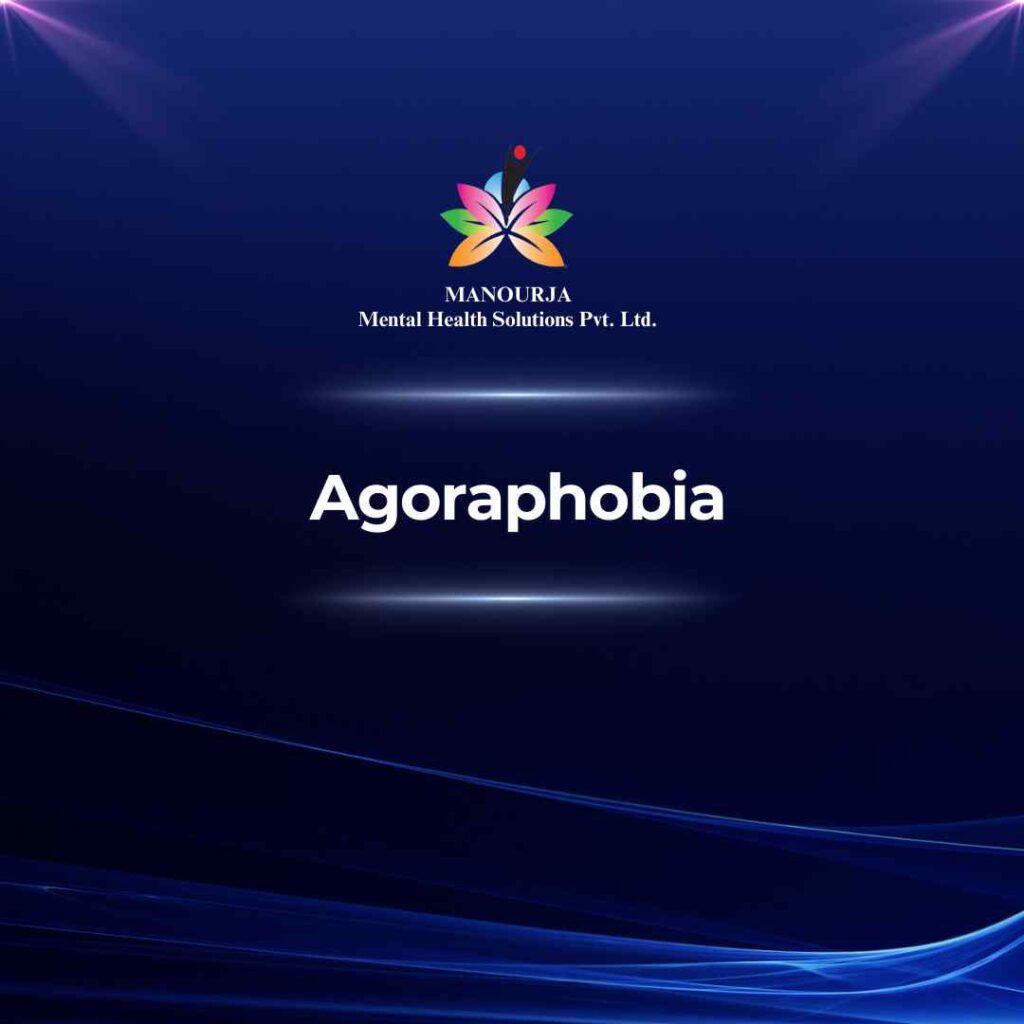Agoraphobia

Agoraphobia is an anxiety disorder, symptoms including- intense fear of being in situations where escape might be difficult or help might not be available in the event of a panic attack or other embarrassing symptoms. This fear often leads individuals to avoid places and situations that might trigger anxiety, such as crowded areas, open spaces, or situations where they feel trapped.
Agoraphobia as a Sign and Symptom of Mental Illness
Agoraphobia is primarily a mental health condition in itself, but it can also be a symptom or a co-occurring feature of other mental health disorders. It typically presents with the following signs and symptoms:
- Intense Fear and Anxiety: Fear of being in situations where escape is difficult or help isn’t available. Commonly feared situations include public transportation, shopping malls, large open spaces, or standing in line.
- Avoidance Behavior: Actively avoiding places and situations that might cause anxiety. In severe cases, this can lead to becoming housebound.
- Physical Symptoms: Experiencing panic attack symptoms such as rapid heartbeat, sweating, trembling, shortness of breath, dizziness, and gastrointestinal distress when faced with feared situations.
- Dependence on Others: Relying heavily on a companion when leaving the house or engaging in feared activities.
Mental Illnesses Associated with Agoraphobia
Panic Disorder:
- Agoraphobia often develops out of complex panic disorder. Individuals with panic disorder might start avoiding places where they’ve previously had panic attacks, leading to agoraphobia.
Generalized Anxiety Disorder (GAD):
- Chronic anxiety can contribute to the development of agoraphobia, as individuals may start avoiding situations they associate with high stress and anxiety.
- Fear of social situations and being judged can overlap with agoraphobia, as individuals might avoid places where they fear scrutiny or embarrassment.
Post-Traumatic Stress Disorder (PTSD):
- Traumatic experiences can lead to avoidance of certain places or situations that trigger memories of the trauma, resulting in agoraphobia.
- Severe depression can lead to a lack of motivation and avoidance behaviors, which can include agoraphobia-like symptoms.
Obsessive-Compulsive Disorder (OCD):
- Individuals with OCD might develop agoraphobia as they avoid places or situations that could trigger their obsessions and compulsions.
Understanding agoraphobia and its association with these mental health conditions is crucial for effective treatment. Treatment typically includes cognitive-behavioral therapy (CBT), exposure therapy, medication (such as antidepressants or anti-anxiety medications), and support from mental health professionals to help individuals manage their anxiety and improve their quality of life.
At MANOURJA, we believe in the transformative power of counseling. Our experienced therapists offer a safe and supportive space where you can explore your thoughts, emotions, and challenges. Through personalized counselling sessions, we’ll work together to develop coping strategies, build resilience, and achieve lasting positive change. Discover the path to a healthier, happier you with MANOURJA counselling services.
MANOURJA Rehabilitation Services
At MANOURJA, we’re dedicated to helping you in rebuild your life, after difficult times. Our rehabilitation services focus on understanding what you need to move forward, whether you’re recovering from addiction, trauma, or any psychological – social challenges. We create personalized plans, that are all about helping you, regain your strength and find hope again. With a caring team by your side, you’ll have the support to make real progress and take steps toward a brighter, healthier future.
